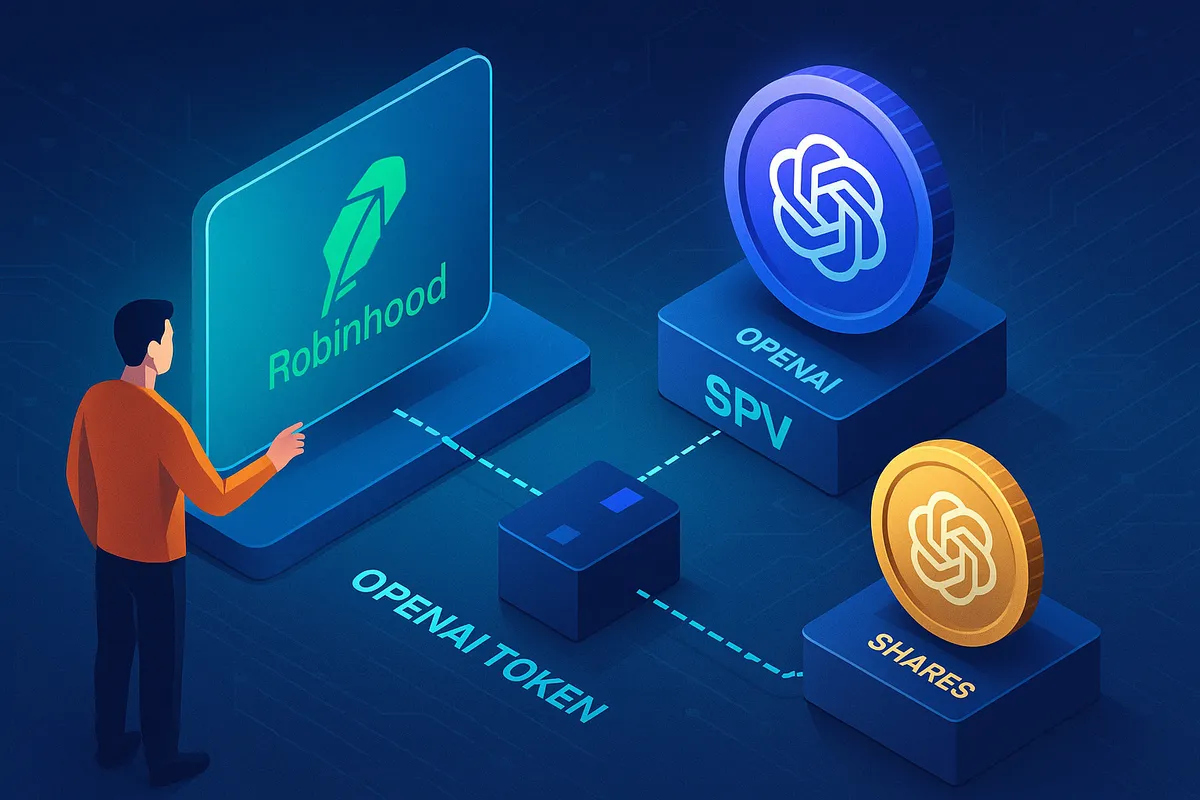
Robinhood Clarifies Nature of Its OpenAI 'Crypto Token'
After OpenAI issued an urgent statement denying it had licensed Robinhood to issue a token and affirming the 'OpenAI token' is not a company share, the trading platform has officially spoken out to clarify the complex structure behind this much-talked-about product.
According to a report from Caixin, a Robinhood spokesperson explained the mechanism of the OpenAI token. The key point is that this is not a form of direct ownership of shares in the world-leading AI company. Instead, the token provides an opportunity for indirect investment. Specifically, Robinhood does not directly hold OpenAI stock. It holds an ownership stake in a "Special Purpose Vehicle" (SPV). It is this SPV that holds the actual OpenAI shares. The price of the OpenAI token listed on Robinhood is then linked to the value of the OpenAI shares held by that SPV.
The SPV model is a familiar financial structure, often used to isolate risk or to create specialized investment products. In this case, it acts as a legal and technical 'bridge,' allowing Robinhood to offer its users a product whose value tracks that of a highly sought-after, unlisted private company like OpenAI. This is a prime example of the complexity and creative solutions being applied to bring traditional assets onto the blockchain.
However, it is crucial to note the regulatory context in the United States. The report also points out that at the present time, all three major trading platforms—Robinhood, Bybit, and Kraken—do not yet offer tokenized U.S. stock services to customers within the country. Regulatory hurdles remain a major challenge.
In a related development, Coinbase, a major competitor to Robinhood in the U.S., is taking pioneering steps. The company has filed a pilot application with the U.S. Securities and Exchange Commission (SEC) with the intent to offer tokenized stock trading services to American customers. This application is currently awaiting approval.
This situation reveals that while the demand for trading assets like stocks in a tokenized format is real, the path to making it fully legal and accessible in major markets like the U.S. is still fraught with challenges. Investors need to clearly understand the difference between owning a crypto asset indirectly via an SPV and directly owning a share of the company.